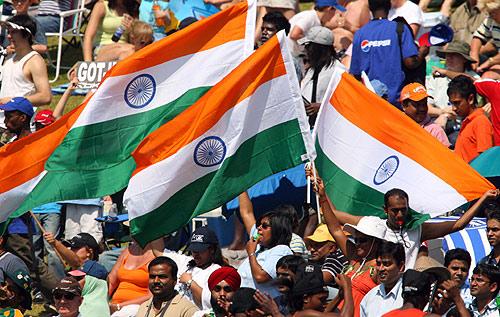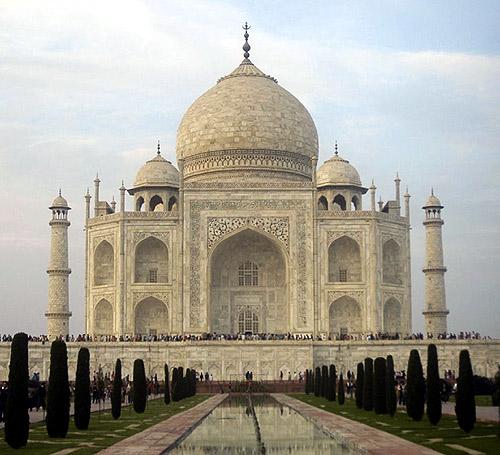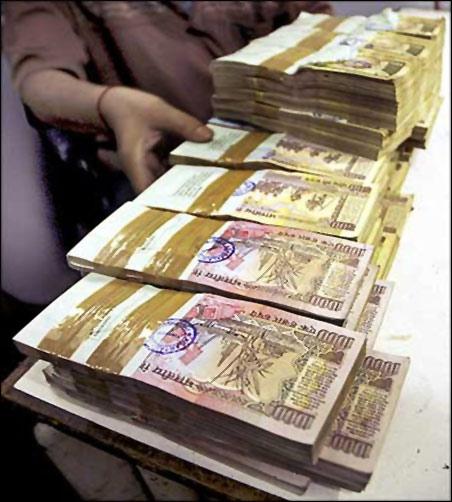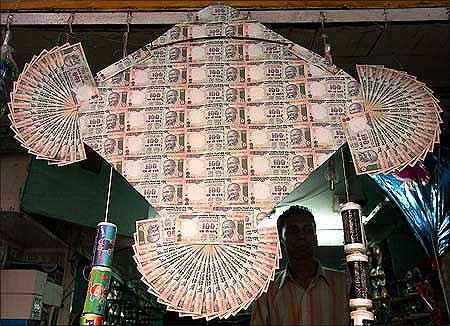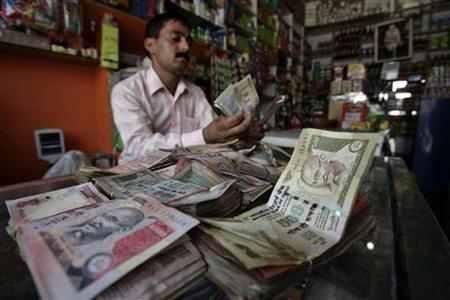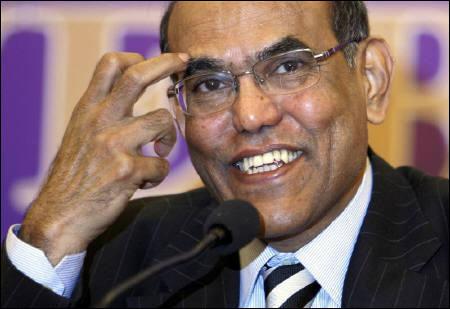 | « Back to article | Print this article |
India's rating outlook stable: Moody's
Global agency Moody's on Monday retained outlook on India's rating at stable despite slowdown in gross domestic product growth rate saying that it is unlikely to be even a medium-term feature.
Moody's Investors Service in a statement said, "It is maintaining its stable outlook on India's rating as various credit challenges -- such as weak fiscal performance, tendency towards inflation and an uncertain investment policy environment -- have characterised the Indian economy for decades, and are already incorporated into the current Baa3 rating".
On the other hand, it said that certain recent negative trends -- such as lower growth, slowing investment and poor business sentiment -- are 'unlikely to become permanent or even medium-term features of the Indian economy'.
Click NEXT to read further. . .
India's rating outlook stable: Moody's
Although, Moody's expects that global and domestic factors, including potential shocks in agriculture, could keep India's growth below trend for the next few quarters.
India's gross domestic product growth rate slowed to 6.5 per cent in 2011-12 against 8.4 per cent in the previous two financial years.
The government expects the economic growth in the current fiscal at around 7.6 per cent.
Moody's retaining India's outlook comes against the backdrop of two other leading agencies -- Standard and Poor's and Fitch lowering the credit rating outlook to negative.
On the rupee's sharp depreciation in the recent months, Moody's said it does not raise the government's own debt service burden significantly.
Click NEXT to read further. . .
India's rating outlook stable: Moody's
The BSE 30-scrip index Sensex was trading higher by 130.54 points at 17,103.05 at 10.40 hours.
The government's foreign currency debt comprises only 5.3 per cent of its total debt and is equivalent to 3.8 per cent of GDP.
Moody's said the rupee's decline does not raise the government's own debt service burden significantly, especially since most of government's foreign currency debt is owed to multilateral and bilateral creditors with low annual repayment requirements.
Moody's also said the government's debt and fiscal deficit ratios have always been worse than those of similarly rated peers, adding that its own assessment of low government financial strength is based not merely on a comparison of ratios, but also on the underlying reasons for weak government finances.
Click NEXT to read further. . .
India's rating outlook stable: Moody's
"These lie in the role fiscal policy plays in maintaining social stability in a highly diverse, poor and unequal society, which limits government revenues and imposes demands on government expenditure," it said.
This poverty constraint, it said, is effectively factored into the rating by assigning India a 'moderate' economic strength assessment, despite the well above global average size and growth rates of its economy.
Furthermore, the impact of lower growth and still-high inflation will deteriorate credit metrics in the near term, but not to the extent that they will become incompatible with India's current rating, the global agency said.
Click NEXT to read further. . .
India's rating outlook stable: Moody's
The agency notes that its ratings express a view on medium-term sovereign creditworthiness and do not generally change with fluctuations in growth related to the direction of the business cycle at a particular point, if Moody's believes growth will recover and sustain over time.
The government's foreign currency debt comprises only 5.3 per cent of its total debt and is equivalent to 3.8 per cent of GDP.
Moody's said the rupee's decline does not raise the government's own debt service burden significantly, especially since most of government's foreign currency debt is owed to multilateral and bilateral creditors with low annual repayment requirements.
Click NEXT to read further. . .
India's rating outlook stable: Moody's
Moody's also said the government's debt and fiscal deficit ratios have always been worse than those of similarly rated peers, adding that its own assessment of low government financial strength is based not merely on a comparison of ratios, but also on the underlying reasons for weak government finances.
"These lie in the role fiscal policy plays in maintaining social stability in a highly diverse, poor and unequal society, which limits government revenues and imposes demands on government expenditure," it said.
This poverty constraint, it said, is effectively factored into the rating by assigning India a 'moderate' economic strength assessment, despite the well above global average size and growth rates of its economy.
Click NEXT to read further. . .
India's rating outlook stable: Moody's
Furthermore, the impact of lower growth and still-high inflation will deteriorate credit metrics in the near term, but not to the extent that they will become incompatible with India's current rating, the global agency said.
The agency notes that its ratings express a view on medium-term sovereign creditworthiness and do not generally change with fluctuations in growth related to the direction of the business cycle at a particular point, if Moody's believes growth will recover and sustain over time.
